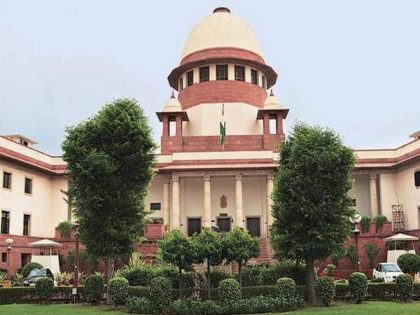Supreme Court Rejects NGO’s Demolition Plea, Cautions Against Opening Pandora’s Box
By Lokmat English Desk | Updated: October 24, 2024 19:39 IST2024-10-24T19:39:14+5:302024-10-24T19:39:28+5:30
Supreme Court on Thursday refused to entertain a petition by the National Federation of Indian Women (NFIW), an NGO, ...

Supreme Court Rejects NGO’s Demolition Plea, Cautions Against Opening Pandora’s Box
Supreme Court on Thursday refused to entertain a petition by the National Federation of Indian Women (NFIW), an NGO, challenging alleged demolition drives across states. A bench comprising Justices B.R. Gavai, P.K. Mishra, and K.V. Viswanathan rejected the plea, stating that the petitioner was neither directly nor indirectly affected by the demolitions. The court emphasized that it did not want to open a "Pandora's box" by addressing cases where the petitioner had no direct stake.
NFIW’s counsel argued that despite the Supreme Court's stay on unauthorized bulldozer actions, three incidents occurred in Uttar Pradesh, Uttarakhand, and Rajasthan without permission, violating the court's order. However, the bench remained unconvinced, reiterating that the petitioner lacked a personal connection to the alleged acts.
Earlier, on October 1, the Supreme Court had extended its stay on demolition actions without permission, reserving an order on framing Pan-India guidelines for such drives. The interim order preventing demolitions without judicial consent remains in place, except for unauthorized constructions on public roads, footpaths, and other public spaces. The court reiterated that public safety is a priority, and any structure obstructing public access, regardless of whether it is a temple, dargah, or gurudwara, must be removed.
The court also expressed concerns about the selective application of demolition laws, cautioning that unauthorized constructions should not be subject to biased action based on factors like religion or criminal background. The bench stated that municipal laws should be enforced uniformly across communities.
This ruling comes amid broader debates over the use of bulldozer actions by authorities, particularly in cases involving marginalized and minority communities. Petitions have alleged that such demolitions are being used as extrajudicial punishment, disproportionately affecting vulnerable groups. The court continues to hear various cases on this issue, aiming to balance the need for law enforcement with concerns about fairness and due process.
Open in app